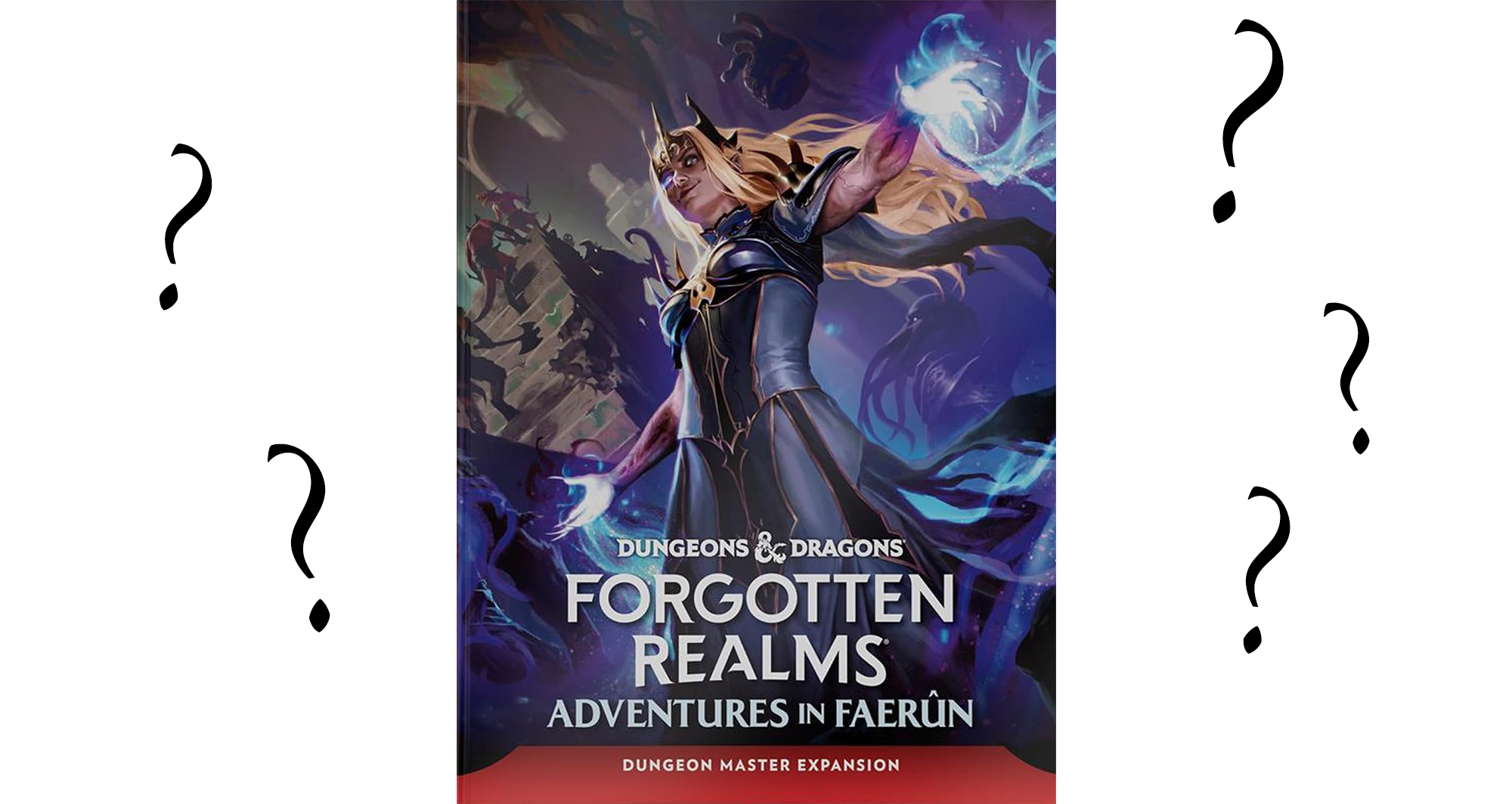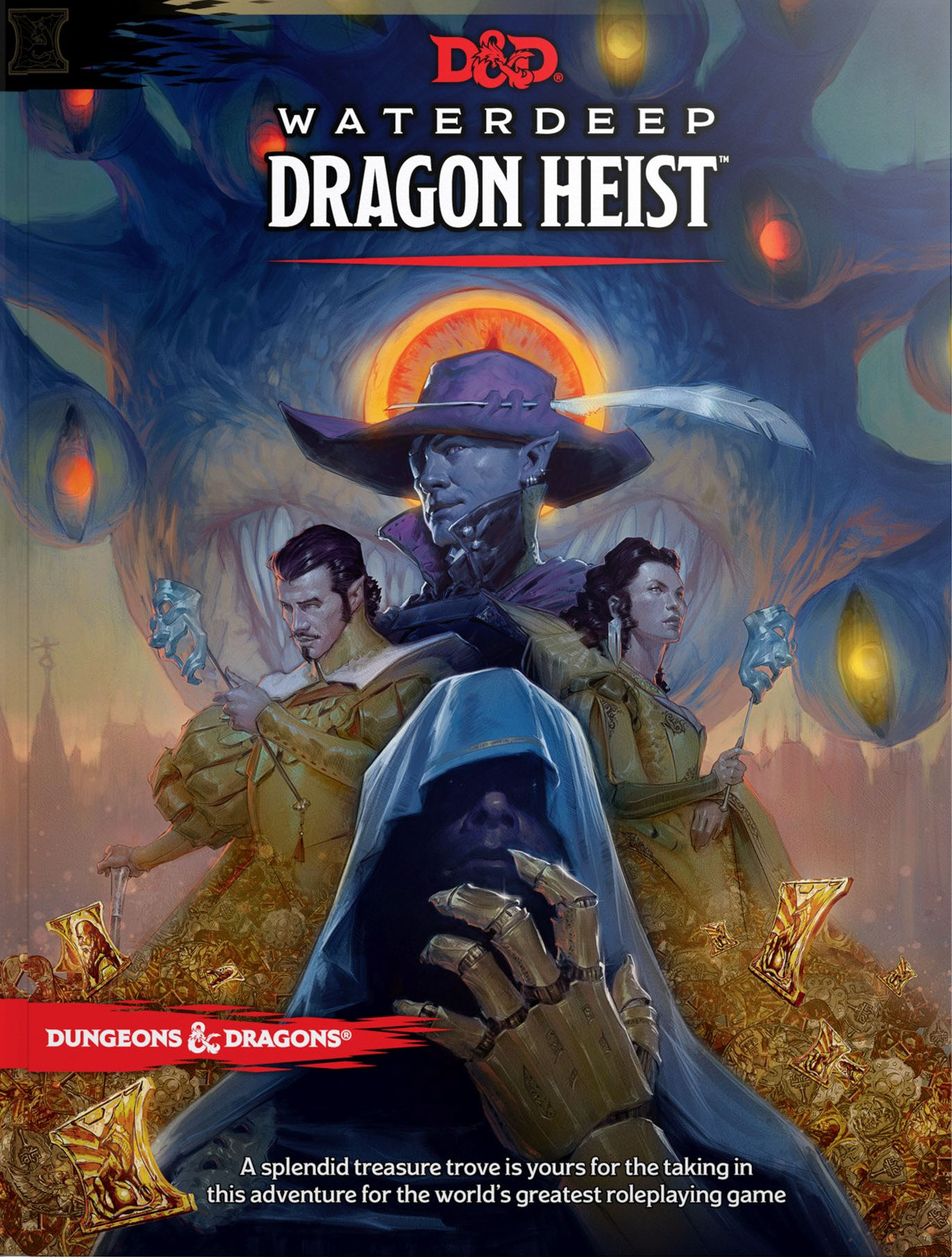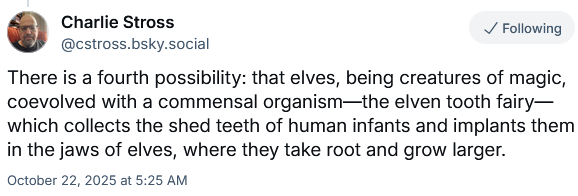
Q. asks:
What’s the difference between a campaign and adventure? I also see you talk about “scenarios.” What’s the difference between an adventure and a scenario?
The short answer is that, for me, a campaign is made up of multiple adventures and I use “adventure” and “scenario” interchangeably.
To understand why, let’s take a little dive into the history of these terms. Plus, I think it’ll be fun.
The origin of campaign is a military campaign. (Which, in turn, comes from the French campagne — literally the “open countryside” in which the armies are maneuvering. The “campaign season” was when warm weather allowed the armies to maneuver and seek battle; to be “on campaign.”) In gaming, it referred to wargame battles which were linked together, so that the outcome of one battle would influence the next. Notably, Dave Arneson ran a Napoleonics campaign in which a heavily modified version of Diplomacy was used to set up the individual battles. The “campaign” was, effectively, the wider world in which individual battle scenarios were set, and this usage carried over when Arneson invented the modern roleplaying game with his Castle Blackmoor campaign.
This early use of the term “campaign” was also influenced by the open table style of play used by Arneson, Gygax, and other early GMs, with a single campaign being not just the adventures of one group of PCs, but many different groups. It wasn’t unusual to hear the phrase “campaign world,” and “campaign” itself was often used as essentially a synonym for “the game setting.”
This also meant, though, that the “campaign” was the collection of all adventures that took place within that shared setting. As dedicated tables became more common, the meaning of “campaign” shifted. It still referred to all of the adventures taking place in a shared continuity, but for most groups that continuity now consisted of the adventures of a single group of characters.
The origin of module was also quite literal: It referred to any product designed to be plugged into your game. It originally referred to all supplements (the game as a whole was seen as literally modular), but the usage rapidly narrowed to refer only to adventure modules, largely because that’s how TSR referred to its adventure products. This resulted in “module” becoming essentially synonymous with “adventure” or “scenario.” (The latter term, you’ll note, also derives from the “scenarios” used for wargames.) This is significant because… well… what does adventure mean for an RPG?
See, the original D&D modules (e.g., Dungeon Module T1: The Village of Hommlet) were really conceptualized as setting supplements: You’d take the location described in the module and literally plug it into the hex map of your campaign world, keying it to one of the hexes. As play moved away from “campaign worlds” shared by multiple groups, however, dedicated tables increasingly gravitated towards episodic play: The DM would buy an adventure module (Keep on the Borderlands or The Lost City or White Plume Mountain or Steading of the Hill Giant Chief) and that would be the next adventure their group would play through.
(This is also influenced by the fact that many of TSR’s earliest modules were originally created for us in convention tournaments.)
Because these modules were now being used by so many DMs as episodic adventures, it naturally followed that published adventures began being written with this in mind: They’re not just cool places for the PCs to explore; they’re specific premises (rescue the princess! recover the stolen gem!) that point at specific conclusions. (The Day the Old School Died dives into a very explicit example of this.)
This all evolved fairly quickly at the dawn of the hobby, and by the mid-‘80s the terms had settled into a pretty common usage: A campaign was a collection of linked adventures (and that link was usually the dedicated group of PCs who played through those adventures together). And the terms module, adventure, and scenario were all used pretty much interchangeably.
But that brings us back to the question: What is an adventure? Is it dungeon? A mystery? Unraveling a grand conspiracy? Obviously, it could be any or all of those things, and the length/scale of a single adventure can vary wildly. For example, a dungeon adventure could be a micro-dungeon with just a couple of rooms or it could be a large dungeon with multiple levels and dozens of rooms.
This became significant when companies started publishing collections of linked adventures. The original Dragonlance modules — a linked series of sixteen modules (including non-adventure modules) — were notable, with their massive success being followed up by Scourge of the Slave Lords (which collected the original A1 thru A4 adventure modules) and Queen of the Spiders (collecting G1-G4, D1-D2, and Q1), but it was a widespread trend. (For example, this is the same time period in which Chaosium was publishing Shadows of Yog-Sothoth and Masks of Nyarlathotep.) Are these one big adventure or many different adventures? The perception of Scourge of the Slave Lords and Queen of the Spiders was certainly influenced by the fact they were previously published as separate adventures, and they were labeled “Campaign Adventures” by TSR.
The distinction, though, could be (and can be) pretty vague. For example, DLE1 In Search of Dragons was a single large “Official Game Adventure” from TSR, but it’s made up of a dozen different adventure locations. What, if anything, makes it different from Scourge of the Slave Lords? Where’s the line between “investigating a cult” (single scenario) and “investigating multiple branches of the cult, each of which is a separate scenario” (Masks of Nyarlathotep)?
On the other hand, Scourge of the Slave Lords and Queen of the Spiders were still being described as books you would slot into a larger campaign, running them for PCs who would go adventuring before and/or after these mega-adventures/campaign adventures/adventure collections. But these two books were also linked. So were they collectively on big adventure spread across two books? A campaign with two adventures? A campaign made up of roughly a dozen different adventures?
Fast-forwarding three or four decades, we can see that very little of this muddiness has actually changed: Is Lost Mine of Phandelver a single adventure or a collection of adventures? Is the answer the same for Dragon of Icespire Peak, which uses an explicit jobs board? What about Curse of Strahd? That has a single, dominant villain. Is that different from Storm King’s Thunder, which has several independent villains scattered across the world, but all linked to the same current events? And is that different from Rime of the Frostmaiden, which has multiple bad guys with no direct connection, but all operating in the same area? Is Hoard of the Dragon Queen + Rise of Tiamat a campaign when it’s published as two separate books/adventures, but no longer a campaign when it’s published in a single-volume edition? What about when it was published in a slipcase or as a giant boxed set with a bunch of individual adventure booklets?
Or consider a megadungeon. Is a megadungeon a single adventure? Or can you think of the megadungeon as being made up of many different scenarios divided up into separate levels? (There’s a reason why true megadungeons are sometimes referred to as “campaign dungeons.”)
To make a long story short, the line between “campaign” (many adventures” and “mega-adventure” (one adventure, but its scope is vast!) can be pretty fuzzy, and it has been for a long time.
Personally, I think it likely that most “adventures” that last more than ten sessions are likely to actually be a campaign made up of several different linked scenarios. I think this distinction has gotten a little muddier over the last decade because Wizards of the Coast has such a predilection for publishing 200+ page campaign books, but I think it still largely tracks to how most people are using the terms.

















